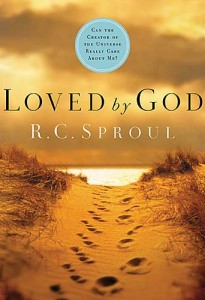 Kevin DeYoung wrote the following at his blog and agree especially with his conclusion that “Churches will still come in all sorts of shapes and sizes. But “atheological,” or worse yet “anti-theological,” should not be one of them.”:
Kevin DeYoung wrote the following at his blog and agree especially with his conclusion that “Churches will still come in all sorts of shapes and sizes. But “atheological,” or worse yet “anti-theological,” should not be one of them.”:
If I’m not mistaken, our church has a reputation for being quite theological. I know this is why many people have come to our church. And I imagine it’s why some people have left, or never checked us out in the first place. But no church should apologize for talking about and loving theology. Now–and this is an important caveat–if we are arrogant with our theology, or if our doctrinal passion is just about intellectual gamesmanship, or we are all out of proportioned in our affections for less important doctrines, then may the Lord rebuke us. We should not be surprised theology gets a bad name in such circumstances.
But when it comes to thinking on, rejoicing in, and building a church upon sound biblical truth, we should all long for a richly theological church.
I could cite many reasons for preaching theologically and many reasons for wanting to pastor a congregation that loves theology. Let me mention six:
1. God has revealed himself to us in his word and given us his Spirit that we might understand the truth. Obviously, you don’t need to master every theme in Scripture in order to be a Christian. God is gracious to save lots of us with lots of gaps in our understanding. But if we have a Bible, not to mention an embarrassment of riches when it comes to resources in English, why wouldn’t we want to understand as much of God’s self-revelation as possible? Theology is getting more of God. Don’t you want your church to know God better?
2. The New Testament places a high value on discerning truth from error. There is a deposit of truth that must be guarded. False teaching must be placed out of bounds. Good teaching must be promoted and defended. This is not the concern of some soulless Ph.D. candidate wasting away in front of microfiche. This is the passion of the Apostles and the Lord Jesus himself who commended the church at Ephesus for being intolerant of false teachers and hating the deeds of the Nicolaitans.
3. The ethical commands of the New Testament are predicated on theological propositions. So many of Paul’s letters have a twofold structure. The beginning chapters lay out doctrine and the latter chapters exhort us to obedience. Doctrine and life are always connected in the Bible. It’s in view of God’s mercies, in view of all the massive theological realities of Romans 1-11, that we are called to lay down our lives as living sacrifices in Romans 12. Know doctrine, know life. No doctrine, no life.
4. Theological categories enable us to more fully and more deeply rejoice in God’s glory. Simple truths are wonderful. It is good for us to sing simple songs like “God is good. All the time!” If you sing that in sincere faith, the Lord is very pleased. But he is also pleased when we can sing and pray about how exactly he has been good to us in the plan of salvation and in the scope of salvation history. He is pleased when we can glory in the completed work of Christ, and rest in his all-encompassing providence, and marvel at his infinity and aseity, when we can delight in his holiness and mediate on his three-ness and one-ness and stand in awe at his omniscience and omnipotence. These theological categories are not meant to give us bigger heads, but bigger hearts that worship deeper and higher because of what we’ve seen in God.
5. Theology helps us more fully and more deeply rejoice in the blessings that are ours in Christ. Again, it is a sweet thing to know that Jesus saves you from your sins. There’s no better news than that in the whole world. But how much fuller and deeper will your delight be when you understand that salvation means election to the praise of God’s grace, expiation to cover your sins, propitiation to turn away divine wrath, redemption to purchase you for God, justification before the judgment seat of God, adoption into God’s family, on-going sanctification by the Spirit, and promised glorification at the end of the age? If God has given us so many varied and multi-layered blessings in Christ, wouldn’t it help you and honor him to understand what they are?
6. Even (or is it especially?) non-Christians need good theology. They may not thrill to hear a dry lecture on the ordo salutis. But who wants dry lectures on anything? If you can talk winsomely, passionately, and simply about the blessings of effectual calling, regeneration, and adoption, and how all these blessings are found in Christ, and how the Christian life is nothing more or less than being who we are in Christ, and how this means God really does want us to be true to ourselves, but ourselves as we were born again not as we were born in sin–if you give non-Christians all of this, and give it to them plainly, you’ll be giving them a whole lot of theology. And, if the Spirit of God is at work, they just might come back looking for more.
There is no reason for any church to be anything other than robustly theological. Churches will still come in all sorts of shapes and sizes. But “atheological,” or worse yet “anti-theological,” should not be one of them.

 An excerpt from Dr. R. C. Sproul’s book, Loved by God.
An excerpt from Dr. R. C. Sproul’s book, Loved by God.